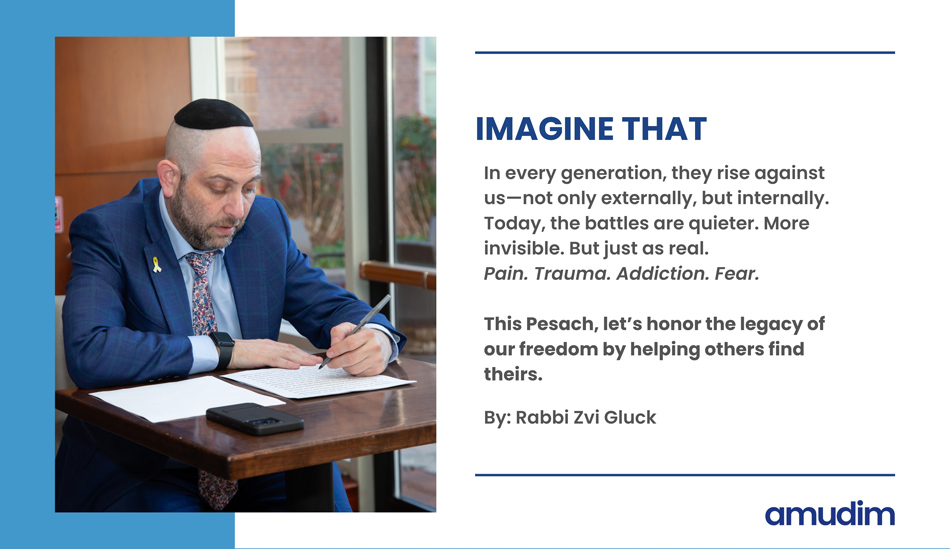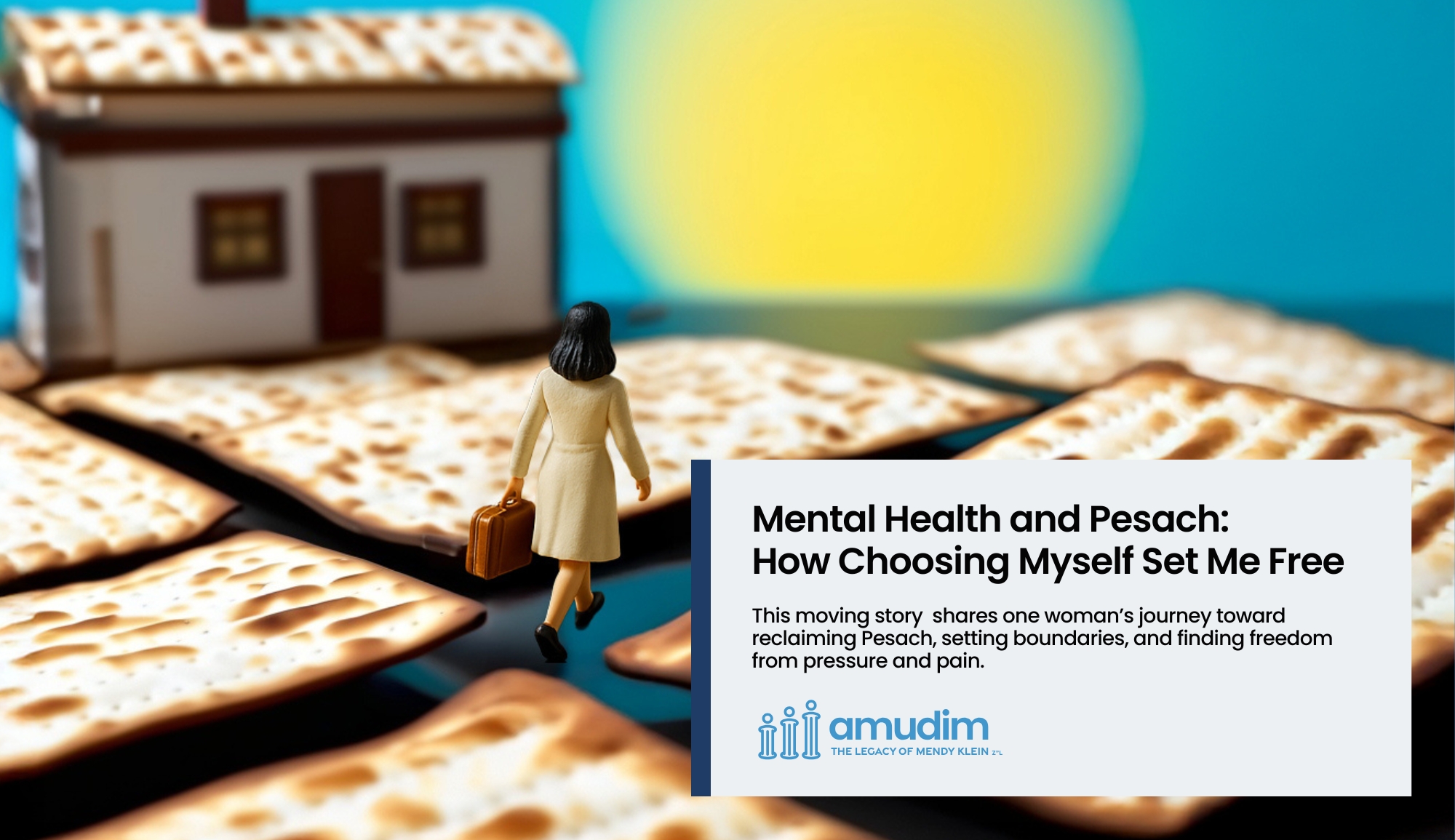
Why We Tell the Story
The Pesach Seder follows a beautiful, deliberate order. But ask most people what part they associate with the night, and chances are, they’ll say Magid. From “Ha Lachma Anya” until the second cup of wine, we relive the journey from slavery to freedom with stories, songs, divrei Torah—and for some, even jumping frogs or marshmallow hail to bring the lessons to life.
For many, it’s a highlight. For others, it can feel long and drawn out. Why spend so much time retelling something that happened more than 3,300 years ago?
Because we need to. Because it defines us.
From Then to Now
Our national history is filled with miracles—splitting seas, burning bushes, the sun standing still—but they are not the norm. More often, our days have been filled with hardship and heartbreak. And yet, we sit at our Seder tables today just like our ancestors did, passing down the story that made us who we are.
We don’t skip the pain. We embrace it, because only through recognizing the struggle can we fully appreciate the redemption.
That same mindset matters today more than ever.
A Modern-Day Plague
In the past seven weeks alone, our community has lost 16 people to suicide. Another nine attempted to end their lives but were thankfully stopped in time. That’s 25 people in crisis. Some were as young as 10 years old, others in their 60s. They came from across the Jewish spectrum—Modern Orthodox, Yeshivish, Chasidish. No one is immune. And heartbreakingly, many of these tragedies were preventable.
We’re not here with answers today. But we cannot stay silent. We must ask the questions that matter—and we must be willing to listen.
Imagine That
Imagine, just for a moment, being completely alone, with no one to lean on—not even for a smile.
Imagine your own family, the ones who should be your safe haven, being the ones who hurt you most.
Imagine someone you trusted violating you in the worst way—and the world telling you to “just get over it.”
Imagine being betrayed—and watching your community praise the person who destroyed your life.
These are the realities our clients face. And as unbearable as it is to picture, perhaps we must. Because only by allowing ourselves to truly see their pain can we begin to bring light into that darkness.
Be Their Redemption
The Seder teaches us to tell the full story—both the pain and the miracle. This Pesach, we must do the same. Let’s talk. Let’s listen. Let’s push for real solutions. Let’s stop accepting the status quo.
This plague has already stolen so many lives. We can’t afford to lose anymore.
This Yom Tov, be their redemption.
Support those in pain. Start a conversation. Help us help them.
Each week, Amudim fields calls covering a wide range of crises and addressing various human concerns, including addiction, depression, abuse, health and domestic emergencies and many others. We track the calls and breakdown of issues for many reasons, foremost of which is to consistently improve and strengthen our knowledge and ability to address community’s needs.
Traveling for Pesach?
GRAB A BITE. MAKE A DIFFERENCE.
Enjoy A Free Kosher BBQ
Stop by for a free meal and feel good knowing your optional donation supports individuals overcoming abuse, addiction, and mental illness.
Join us to help bring hope.
It's the BBQ that makes the difference.
Call or text 216.644.4704 with any questions.
THURSDAY, APRIL 10TH, 1:00–9:00 PM
I-80 AT EXIT 173, AT THE FLYING J STATION IN LAMAR, PA

Pesach is about freedom—but what if it feels like the opposite?
This powerful story explores the pressure, the expectations, and the emotional overwhelm that Yom Tov can bring—and what it means to finally choose yourself.



